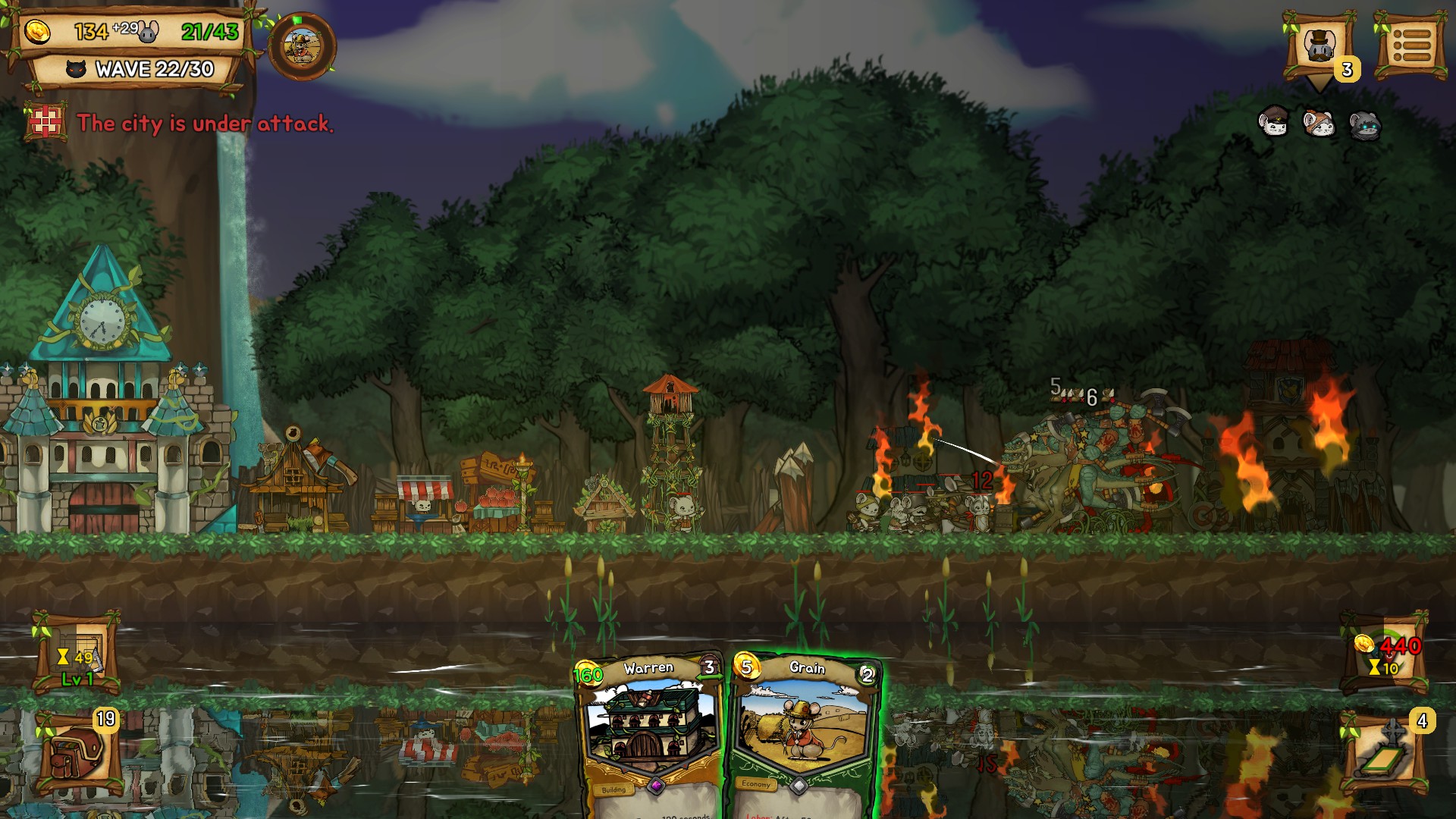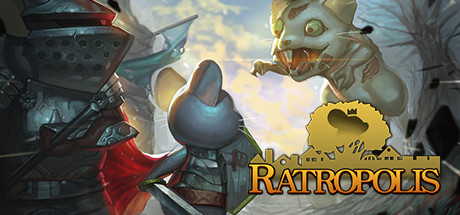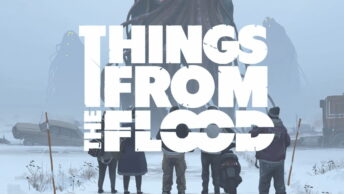Build, fortify, and lead a city of displaced anthropomorphic rats as they do their best to survive in a hostile 2D world based around deck-building mechanics.
Type: Single-player
Genre: Strategy
Developer: Cassel Games
Publisher: Cassel Games
Release date: 01 November, 2019


Overview
I seem to be dipping into the card mechanics pretty heavily over the last few months, starting with my addiction to Slay the Spire and most recently spending a good amount of time with Trials of Fire. Ratropolis pleasantly surprised me yet again and is now the newest of the genre to soak up my free time when I had initially gone into it not entirely sure of what to expect. After only the first couple of games, I realized that it’s another title to earn a spot among my favorites for its unique blend of real-time and deck-building elements, a combination that is so well done that I’ve played at least two games of it every day since I first got my hands on it.
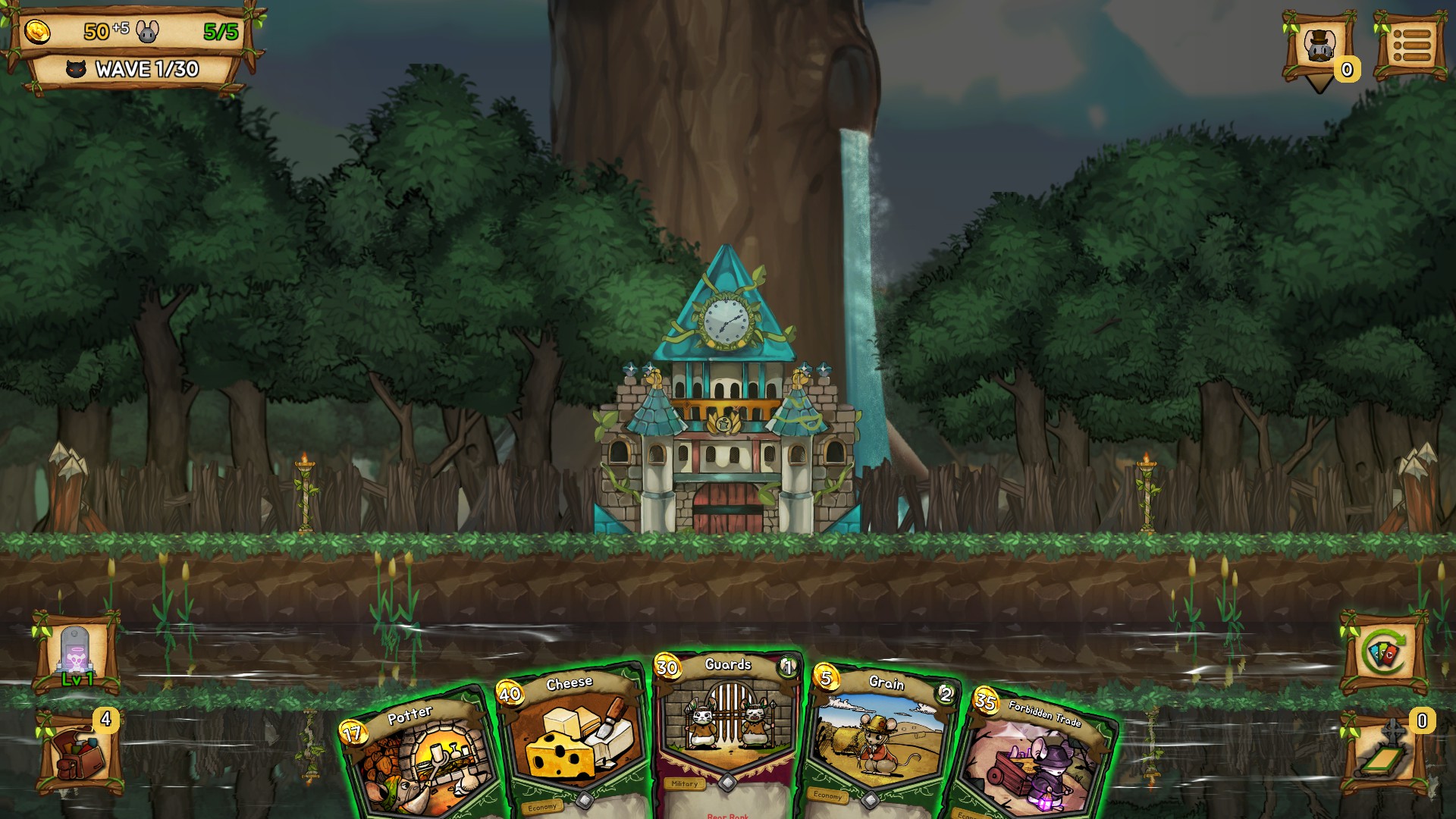
Enter the Rat Race
Ratropolis is played in games that last anywhere from a couple of minutes to half an hour depending on how well you hold off the enemies of ratkind (other rats, weasels, and even reptiles) that seek to raze your city. Waves of increasing strength arrived every minute and you must fight them off with the resources that you have at your disposal. Fortunately, each wave provides a treasure chest upon being defeated that rewards you with a choice of useful boons, such as adding or removing cards from your deck, increasing the efficiency of your leader, or even building a new house to boost the population of your rats and the taxes that make up your income. The occasional boss wave offers an even more impressive selection of rewards, though you certainly earn them as they are a significant threat to your settlement.
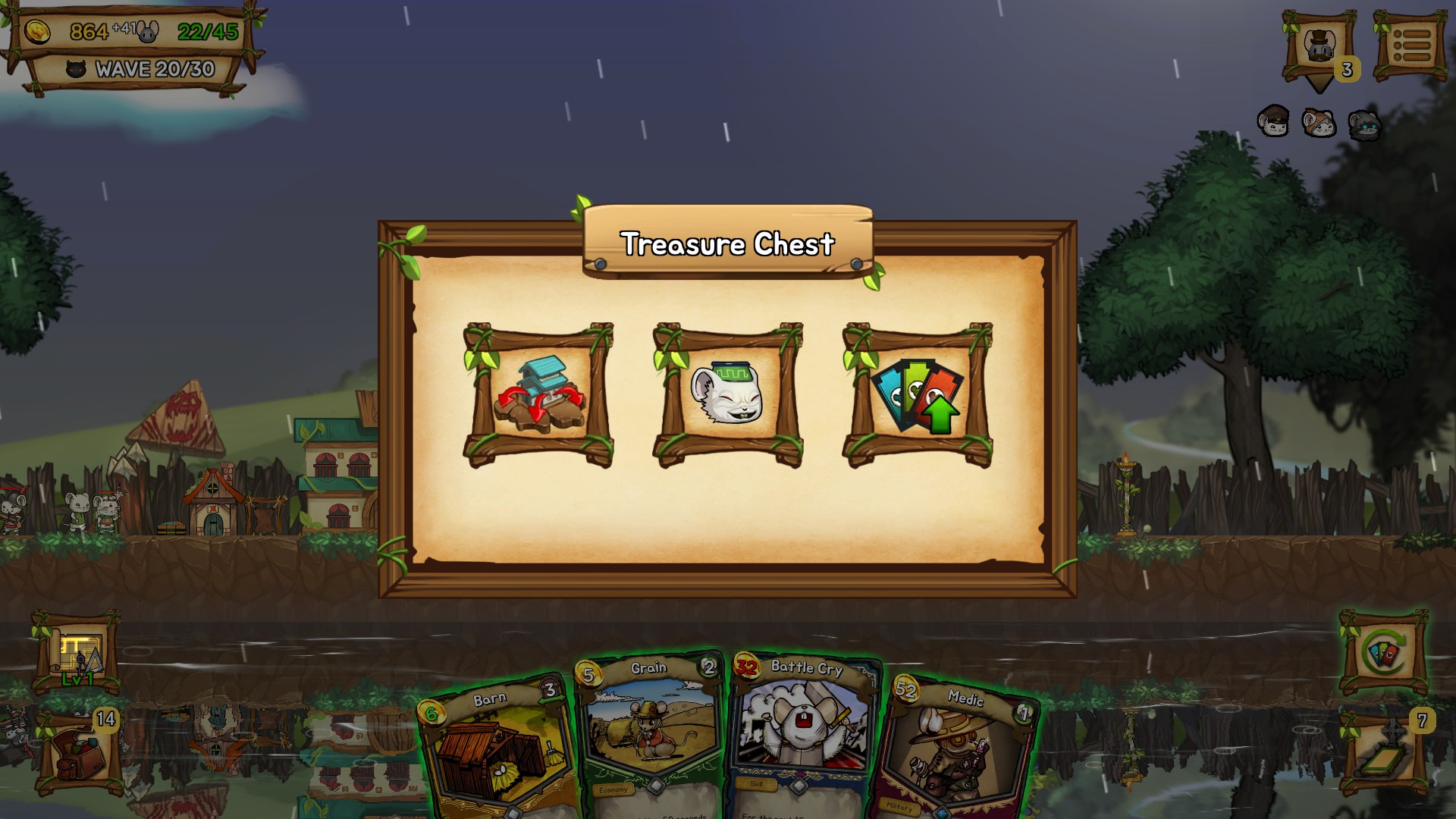
Due to the real-time nature of the game, drawing a new hand of cards is restricted not by turns, but by a timer. You can pay a hefty sum of coins to skip the timer and instantly draw, but even the richest of cities will struggle financially if this is used too often. There are plenty of times where it’s worth it though, an immediate hand or two in an emergency can be the difference between surviving a wave and being overwhelmed by it.
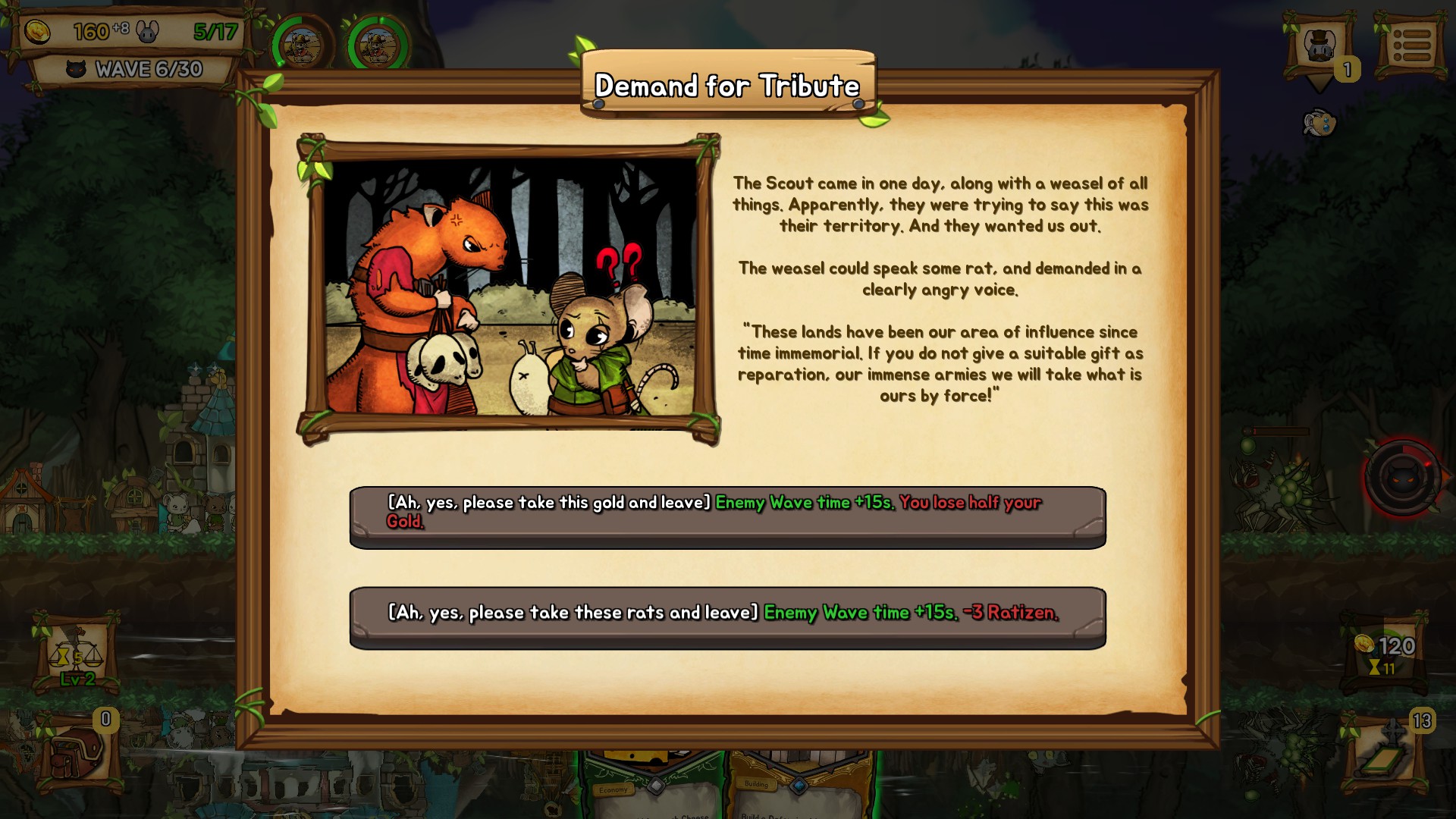
Hoarding For Survival
When you first begin, you some open land with your capital building centered on it, and a wall on either side of it. The direction that the settlement goes from here is determined by the cards that you use, and they come in for primary categories: economy, building, military, and skill. Other than in rare instances, cards always cost gold, and sometimes other resources such as your population. Economy cards tend to focus on making money in one way or another. Building cards are single-use cards that construct permanent structures on your open land or expand it further with new walls at predetermined locations. These tend to offer powerful activated abilities and useful passives, though they’re a fairly uncommon find and the most impressive of them are also expensive. Military cards create units at a wall of your choice, each consumes one of your population (or more if they’re particularly powerful) as well as their cost in coins. Unit types are varied and plentiful, but you’ll often struggle with your available population due to the increasingly stronger defenses that you need; housing is more than worth its weight in gold. Finally, skill cards are used for an instant effect, such as a battle cry that buffs military units for a short time, or another that sets an area on fire dealing damage to all units that pass through it until it burns out. I was pleased with the assortment in every category, and gaining new cards never stops being exciting.
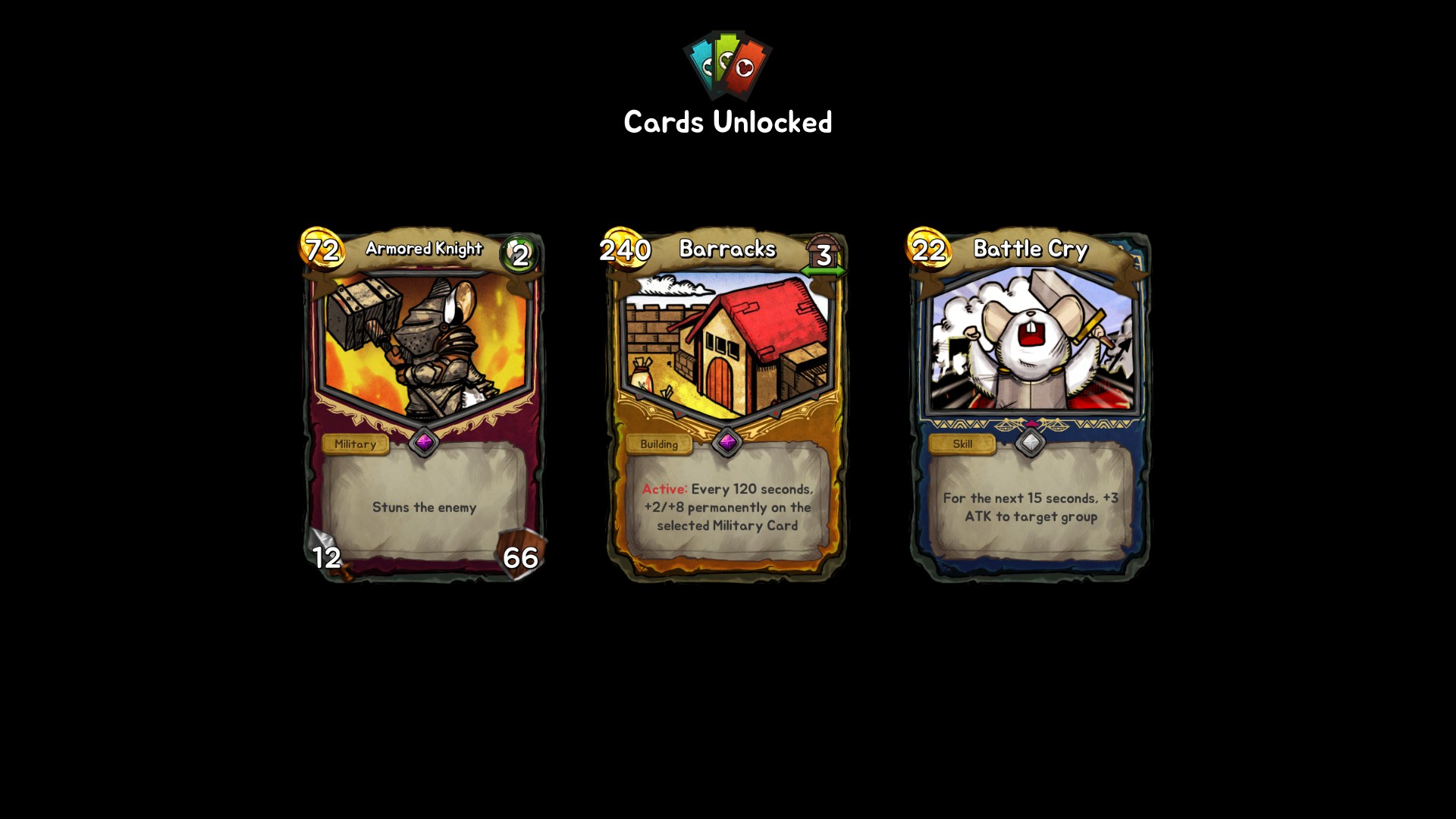
King of the Rats
Each game of Ratropolis starts with you selecting a leader, though you’ll only be able to use the merchant in your first game as you’ll unlock the rest by hitting milestones later. The roster currently includes the merchant, the general, the building, the scientist, and the shaman, though there is at least one more coming by the final release. Each of these comes with an activated ability and a passive benefit. The merchant can discard cards to generate additional gold for your treasury based on the amount of gold currently in it, while they also reduce the purchase price of new cards from merchants and the market. The general can strengthen any military cards in their hand, and every such card in their deck increases the population of your settlement. The builder can discard their hand to acquire building cards that must be built before drawing the new hand, and building cards, in general, can be played on buildings of the same type to upgrade them. The scientist can generate skill cards that must be used immediately, though the use of any such card will reduce the timer on their ability making it available frequently if you have a good number of them in your deck. The last of those currently available, the shaman, specializes in the soul resource and can use it as a currency to acquire a number of useful benefits. With leaders that suit a wide variety of playstyles, I’ve found that I can play several games in quick succession without losing interest and I’m looking forward to whatever others may be added to the game in the future.
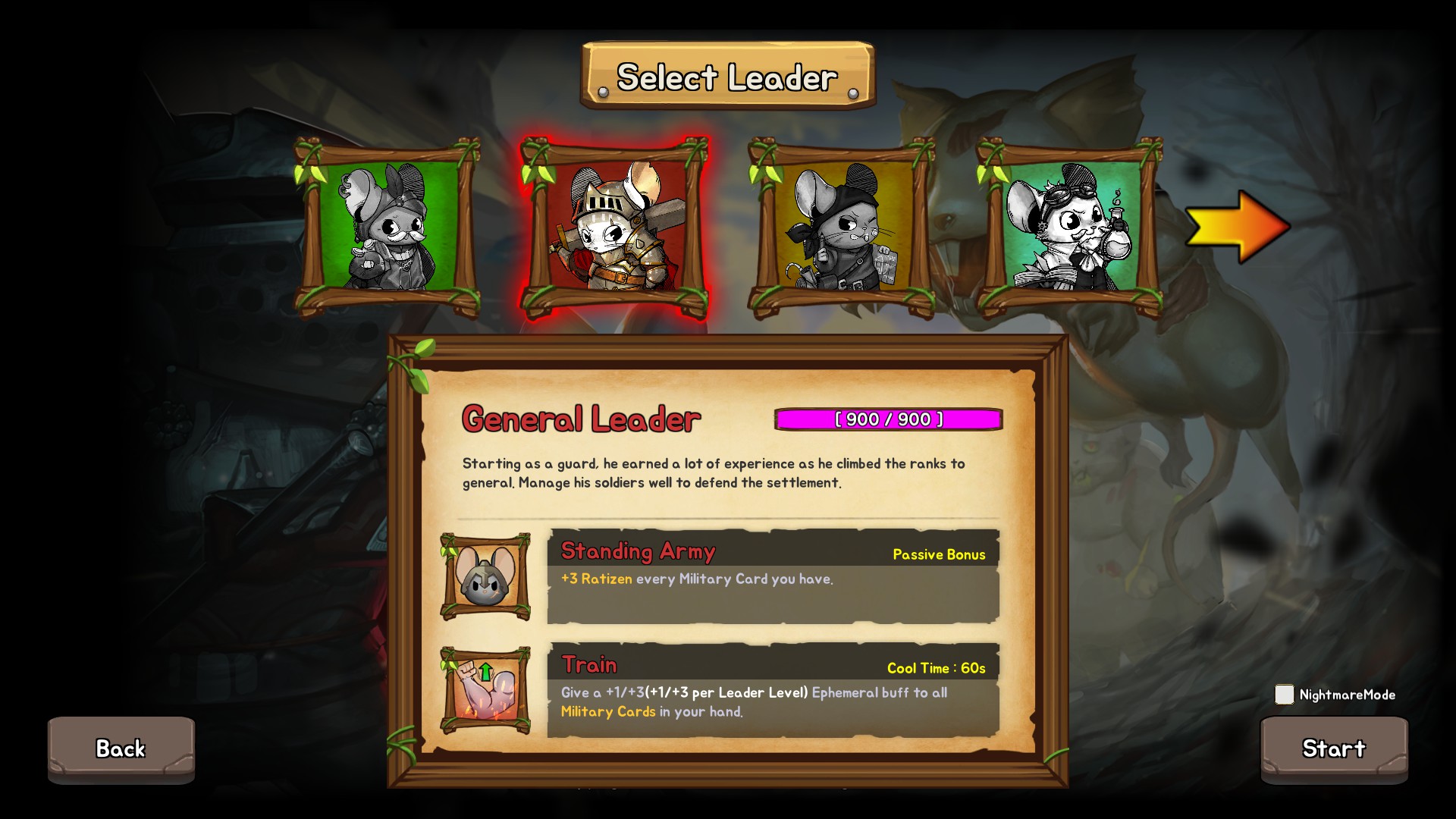
Verdict
Ratropolis is easy to learn, but a challenge to master, and every game feels different from the last. Although some have offered solid competition for Slay the Spire’s crown at the top of the genre, none have come as close to Ratropolis for me, and that’s saying something as it’s still in Early Access. I highly recommend it to anyone who likes the concept, particularly if you’re into card-based mechanics, as I’d already classify it as an indie gem even in its current state. The only warning that I would give is that its real-time aspect keeps you on your toes and rushing about, sometimes even making you feel overwhelmed depending on the situation at hand. If you don’t need that kind of stress in your life and would prefer games that are slower-paced, this one may not be what you’re looking to pick up as your next purchase.
